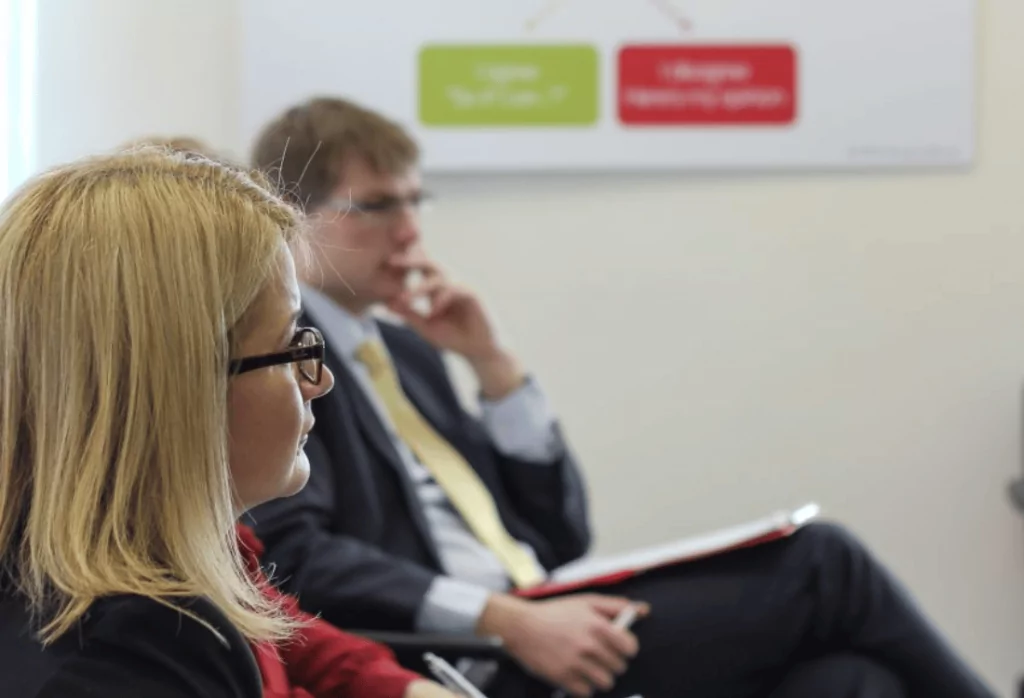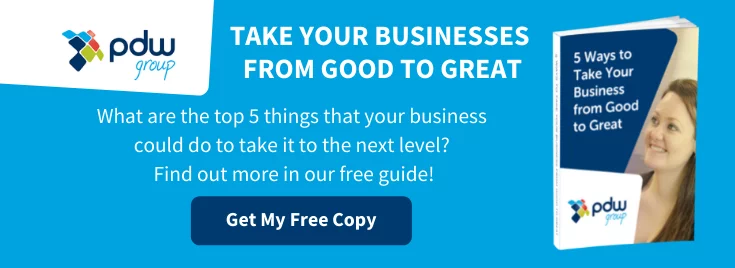
Game Changing Management Development
PDW Group has been working with Whittingham Riddell, a leading firm of chartered accountants and tax advisors based in Shropshire & Wales on People Development initiatives for the last four years. They wanted to focus on managing training and development more effectively.
We caught up with Jenny and Yvonne from Whittingham Riddell who recently participated in the ‘Whittingham Riddell Management Development Programme’ to find out more about their experience and personal successes.

Tell me about your experience of the Management Development Programme and what was the key highlight for you in terms of managing training and development?
Jenny: Overall the programme has given me an increased self-awareness and in particular, the behavioural styles section of one of the workshops was my favourite part of the programme. This particularly stood out for me as I had previously received feedback from someone about being direct. This had surprised me as I didn’t perceive myself in this way. Finding out about behavioural styles really demonstrated how we all have different ways of approaching something depending on our behavioural style. It has reinforced how I should take a different approach with the people I work with.
Yvonne: It was a positive experience as we covered new things that were extremely helpful as well as reinforcing some things that I already do, but didn’t know exactly why, so I found this reassuring.
I would say that behavioural styles was the highlight for me. Learning about how this affects my interactions in the workplace and with clients has made me more aware of my own reactions. I now understand why I react in the way that I do due to my own behavioural style and learned how I can flex this to others.
What skills did you learn that you have found the most relevant to your job?
Jenny: The 4 P’s framework is a really easy way of helping to structure meetings. I can see a big difference in the meetings where I have used this. It helps me give a clear structure to all my client communications and being specific about the next steps or when I need them to come back to me on something.
Yvonne: Meeting Conduct and Preparation. I realised the power of the pause in both formal and informal situations and learnt that saying nothing is just a powerful tool as filling the gaps with words!
I also found using the Expectations Exchange meeting template helpful. It gave me the confidence to have discussions that previously I would have felt uncomfortable about. I have learnt new things about the people I work with which has improved our working relationship.
What do you think differentiates a PDW workshop from other training?
Jenny: There is no paperwork! This meant that I was completely focussed in the workshop. Listening to the concepts, discussing them and then practising them right away really helped me to concentrate and maximise my learning.
Yvonne: It is hands-on and personal to you. If we asked about something in the workshop then it was picked up and discussed as we progressed through the modules. I felt that this process was continuous and there was a trail of personal connection whereas I have found other training to be more general.
What did you think about the practical aspect of the workshop, in particular the practise sessions and coaching elements?
Jenny: It was terrifying at first, as practising the conversations really put me outside of my comfort zone however, I can see the real benefit in rehearsing conversations and that practising the skills really helps it all sink in. The support consultants were excellent at guiding you through the conversation and suggesting how you could rephrase something or explore a different direction. This feedback along with being able to ‘time out’ was essential in helping the skills ‘stick’ and use them going forward.
We were put in small groups for the practise sessions which gave us the opportunity to watch each other and observe different approaches to a conversation or situation. My colleague was analytical and adopted an entirely different approach to me. This again helped with my self-awareness in how I could get the best out of others and make them feel comfortable.
Yvonne: I found the sessions where we practised personal interactions between myself, colleagues and clients the most useful. The support consultants were very good at timing out and helping you to reflect on what you had just done or said. The opportunity to ‘go back’ and have another try at taking control of situations and make sure that you delivered a message in a confident way was a good way to raise awareness of the importance of preparation and planning.
Having completed the programme, can you give me an example of something you have personally achieved since?
Jenny: I have adapted my approach to working with clients depending on their behavioural style. If they have a more analytical behavioural style then I make sure that I send a detailed email first with all the information they require. I will then give them the opportunity to call me and talk anything through. I have recently had some good feedback from a client on understanding their needs with this sort of approach.
Yvonne: I had an expectations exchange meeting with one of my colleagues which has really helped the dynamic of our working relationship. We now understand what we each need from the other and why we were not communicating effectively. This was due to our difference in delivery styles and a misunderstanding of our respective knowledge base. The improvement in our relationship has also filtered down through the Team as we are now delivering more coherent and consistent messages. This has shown itself in better Team performance and a much less stressful working environment.
Please contact us to learn more about we can help you with managing training and development for your business.

